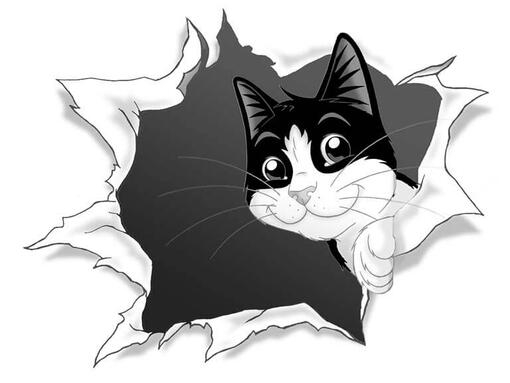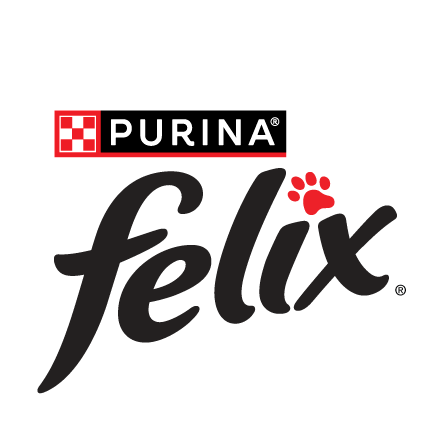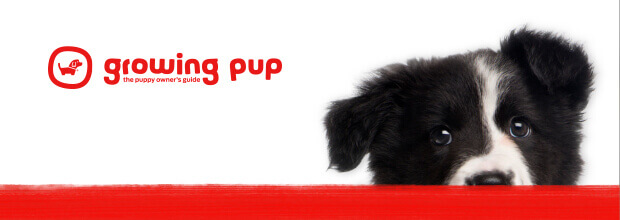

All Felix meals have NO added colours!
That’s right! ALL colourants have been removed from our recipes. Read on to find out more.
We listen to feedback from pet owners (both positive or negative) and use this insight to improve our products. One example is colourants.
Many consumers do not want colours in their own food, and do not want them in their pets’ food either. In 2016 we made a commitment to remove all artificial colours from our pet foods, which we have done. We later removed the remaining non-artificial colours from our Felix ranges in March 2021.
The removal of added colours does not change the overall nutritional composition or quality of our food – every Felix meal is still 100% balanced and complete, with all the vitamins and nutrients your clever cat needs. We also rigorously test any changes to check that the new product is as appealing to pets as the previous recipe was, and our feline taste testers gave it a resounding purr of approval.
What hasn’t changed is our stringent approach to safety. We continue to test each and every batch of product to ensure it is safe to feed your cat. This is as true now as it was prior to our changes.
We know some owners have discussed the recipe change online, with reports of cats being unwell which owners believe is linked to our Felix pouch range. Although food may seem an easy link, there can be many reasons for cats to become poorly. You may find this leaflet from Cats Protection helpful: https://www.cats.org.uk/media/1047/vg18_digestive_disorders-_vomiting_and_diarrhoea.pdf.
If you have concerns regarding your cat’s health we recommend reaching out to your veterinary professional for advice and guidance.
Check out our FAQs below if you want to find out more about last year’s changes to our Felix range:
There were two reasons why we changed our Felix packaging:
- We made changes to help cat owners more easily identify and choose between our different Felix product ranges; and
- We had to change the way we declared various ingredients on the label due to changes in regulations.
There are several reasons why we might make changes to our products and packaging:
Regulation changes: As with any industry, regulations can change. Changes to the way we declare vitamins, minerals, additives and flavourings on pack are due to legal changes that we must follow. For example, we now list Taurine under additives. Similarly, we now label micronutrients such as iron, copper and zinc by the element value rather than by the compound value. These changes do not affect the overall nutritional composition of the food which continues to meet or exceed strict legal and dietary requirements.
Latest nutritional knowledge: Purina veterinarians and nutritionists work every day to advance the science of pet nutrition. We adjust our products to reflect their latest findings. For example, we changed some feeding guidelines for Felix last year based on new data about pets’ life stages and associated energy needs.
Consumer demand: We listen to feedback from pet owners (good or bad) and use this insight to improve our products. One example is colourants. Many consumers do not want colours in their own food, and do not want them in their pets’ food either. In 2016 we made a commitment to remove all artificial colours from our pet foods. In 2021 we went one step further and removed the remaining non-artificial colours from our Felix ranges.
Transparency: Pet food labels can be confusing. This is primarily because pet food comes under the same EU legislation as farm animal feed and we must follow the associated labelling requirements. We regularly look at how we can make our labels easier for pet owners to understand.
The most recent changes to our Felix ranges were made at the end of March 2021, when we removed all non-artificial colourants, changed our packaging designs and updated our on-pack feeding guidelines.
No. The total meat content stayed the same and is shown in the ingredients as, for example, "44% meat and animal derivatives in the chunks". The 2% or 4% figure on the pack refers to the minimum amount of the named variety or flavour on the pack, and is a legal labelling requirement. For example a tuna recipe will have *at least* 4% tuna in it, and a Tuna and Cod mix recipe will have at least 2% tuna and 2% cod.
When we make changes to any of our ranges, we rigorously test for palatability, making sure the new product is still as appealing to pets as the previous recipe.
However, we know some cats can be sensitive to even the smallest changes, which is understandably upsetting for their owners.
Felix foods are completely safe for cats to eat. All our foods are nutritious, complete and balanced and we never compromise on the safety or quality of our products or ingredients.
We know that the recalls in cat food have made many owners feel uneasy about what food is and is not safe to feed their beloved pets. We want to reassure you that each and every batch of Purina food made in our factories undergoes a strict, quality assurance process.
We carry out around 300 tests every day on the raw materials and packaging materials that enter our factories and a further 1,100 checks a day across the production process and finished products. In addition, batches are selected at random for testing in accredited laboratories.
This testing ensures that Purina pet foods consistently meet or exceed the strict legal requirements in place. In the rare event that a batch does not meet these standards, we have robust procedures in place to ensure this is not released for sale.
We appreciate how worrying it is for owners when their pets are poorly. Although food may seem an easy link, there are many reasons why a cat may become unwell. As any veterinary practice will confirm, vomiting and diarrhoea in cats are two of the most common reasons for owners to seek veterinary advice. There are many documented causes for both symptoms including:
- Viral or bacterial infections
- Dietary indiscretion (when a pet eats something inappropriate or swallows an object that causes stomach or intestinal obstruction)
- Changes in diet
- Intestinal parasites such as worms
- Contact with toxins/poisons, including household plants and chemicals, and garden plants and pesticides
- Medication side effects
- Certain chronic diseases or inflammatory disorders
- Stress (or excitement) due to boarding, or other changes in environment or the cat’s routine.
Many cases of vomiting or diarrhoea are mild and clear up relatively quickly. We would always recommend owners contact their veterinary practice for advice and guidance, particularly if symptoms persist as this could be a sign of an underlying and undiagnosed health condition.
In many cases of vomiting and diarrhoea, the cause may not always be obvious. We understand that it can be worrying and frustrating for owners of cats with vomiting and diarrhoea to not always have a precise cause identified for their illness. Often the vet will give symptomatic treatment or advice without additional investigations or tests, in the same way as the doctor will with people. If the condition is persistent, then the vet will likely suggest clinical investigations to try to identify the source of the problem. Sometimes unfortunately it will still not be possible to reach a clear conclusion, especially if it is multifactorial – although in many cases the clinical investigations will result in a definitive diagnosis.
You may also find this leaflet from Cats Protection helpful: https://www.cats.org.uk/media/1047/vg18_digestive_disorders-_vomiting_and_diarrhoea.pdf.
With regards to Felix food, we conduct rigorous testing to ensure that our foods consistently meet or exceed strict legal and safety standards. Our foods continue to be safe for pets to eat every day.
However, we take every report of a cat being unwell linked to our products very seriously and investigate each claim individually. If your cat has been unwell and has been eating our Felix products, please contact our careline team directly at petcareteam@purina.nestle.com .
We did receive reports from cat owners last year about food refusals and cats being unwell following the removal of non-artificial colourants from our Felix ranges. We also know some owners have discussed the recipe change online.
We take every report of a cat being unwell linked to our products very seriously and investigate each claim individually. However, based on all the information we have gathered, which includes stringent internal quality checks, discussions with vets, as well as independent product testing, there is no evidence to support a link between the types of illness being reported and our foods. We are confident that our Felix foods continue to be safe for cats to eat every day.
We take every complaint seriously and investigate each one individually. If the complaint links our products to a cat being unwell, like diarrhoea, we carry out a set of specific actions including:
- Collecting information about the product, so we can check all production records relating to the batch codes to verify all our quality and safety standards had been met.
- Asking for vet information and clinical notes, which our team of veterinary nurses and veterinarians can then review to understand the professional diagnosis associated with the complaint.
- Sending a pre-paid envelope for the return of the foods fed, which our team can review.
This process helps us thoroughly investigate each case and take appropriate action. We need owners’ support to complete these steps.
When we make changes to either product packaging or the outer cardboard box, we will often phase in the new packaging to avoid the environmental impacts of sending old packaging to landfill. For a short period of time, this can mean the design of the pouches and outer cardboard boxes for multi-packs may not match. This is not a matter for Trading Standards because only the look/design of the laminated pouch is different - the ingredients/food inside each pouch match the ingredients label on the outer box.
Taurine is an essential amino acid that cats need for cardiovascular, retina and central nervous system functions. Unlike humans and dogs, cats do not produce enough themselves, which means it is vital that they get it from their food.
We base the amount we use on FEDIAF (European Pet Food Manufacturers) nutritional guidelines. The amount listed on pack is milligrams per kilogram of food.
Felix products were not included in last year’s investigation by the Food Standards Agency and Royal Veterinary College into the sudden increase in UK cases of Feline Pancytopenia. All our foods continue to be nutritious and safe for pets to eat every day.

Contact us
We’re here to answer all of your pet questions - big or small, really serious or a little silly. Our lines are open from 9am - 5pm, Monday to Friday (excluding UK bank holidays).
If you have any specific accessibility needs, such as requiring larger font sizes in our written replies, or you have any other requirements, please let us know when you contact us. We are here to help and will do our best to assist you.


